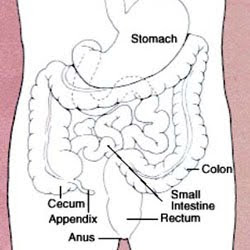While the number of actual cases is still extremely small, U.S. researchers report that the incidence of rectal cancer among people under the age of 40 is on the rise. A young person's chance of developing the disease remains tiny, but doctors should be aware of the risk, said study co-author Dr. David L. Sherr, an assistant professor of radiation oncology at Weill Cornell Medical College in New York City. "If patients under 40 have rectal bleeding, that should be taken as seriously as in a 0-year-old," Sherr said. "Some kind of investigation could be warranted."
While colon and rectal (or colorectal) cancers often strike older people and are responsible for the second-highest number of cancer deaths in the United States after lung cancer, these cancers are fairly rare in younger people, the study authors noted in the report published online Aug. 23 and in the Sept. 15 print issue of Cancer. Sherr estimated that only 300 annual cases of rectal cancer, on average, were diagnosed in people under the age of 40 in the entire country between 1973 and 2005. He said the risk of a person younger than age 40 being diagnosed with the disease during that time period was about four in a million.
However, an analysis of U.S. statistics shows that rectal cancer has been increasing by an average of 2.5 percent a year. While that amounts to fewer than 10 extra cases each year compared to the previous year, it's still a "real and significant increase," he said. It's not clear why cases are on the rise, but Dr. Jerald D. Wishner, a cancer specialist, said he's seeing more colorectal cancer cases among young people than a decade or two ago. "At any given time, I'm taking care of two to three patients in their 20s and 30s with colon and rectal cancer," said Wishner, co-director of minimally invasive and robotic surgery at Northern Westchester Hospital in Mount Kisco, N.Y.


No comments:
Post a Comment
Note: Only a member of this blog may post a comment.